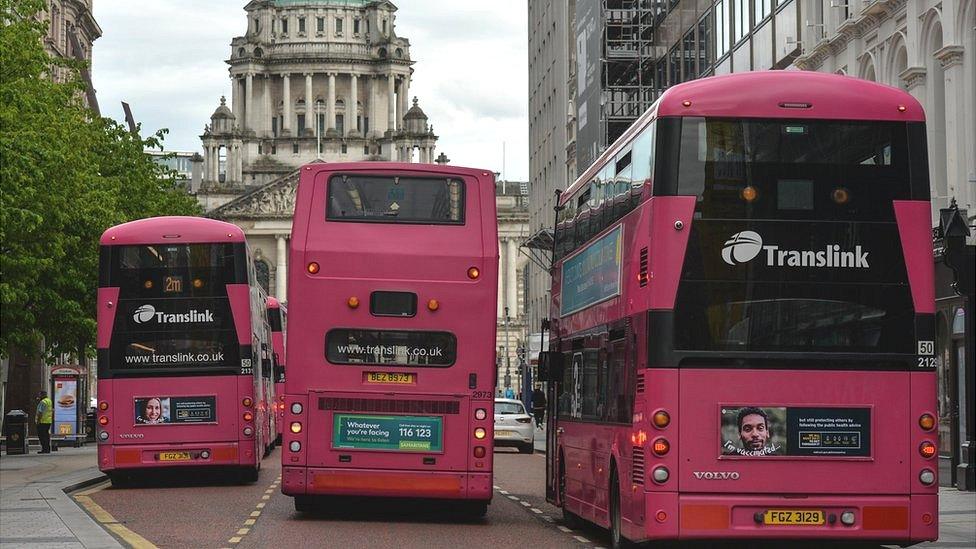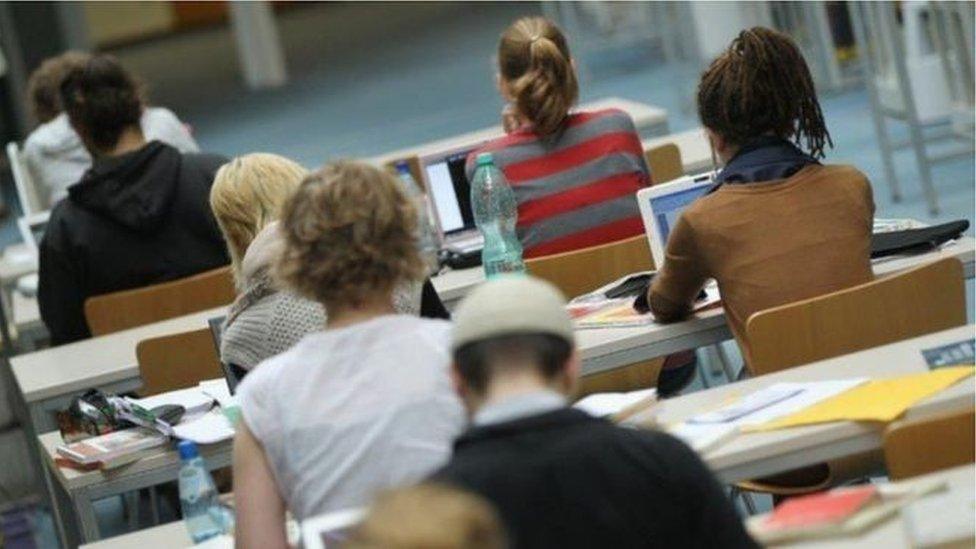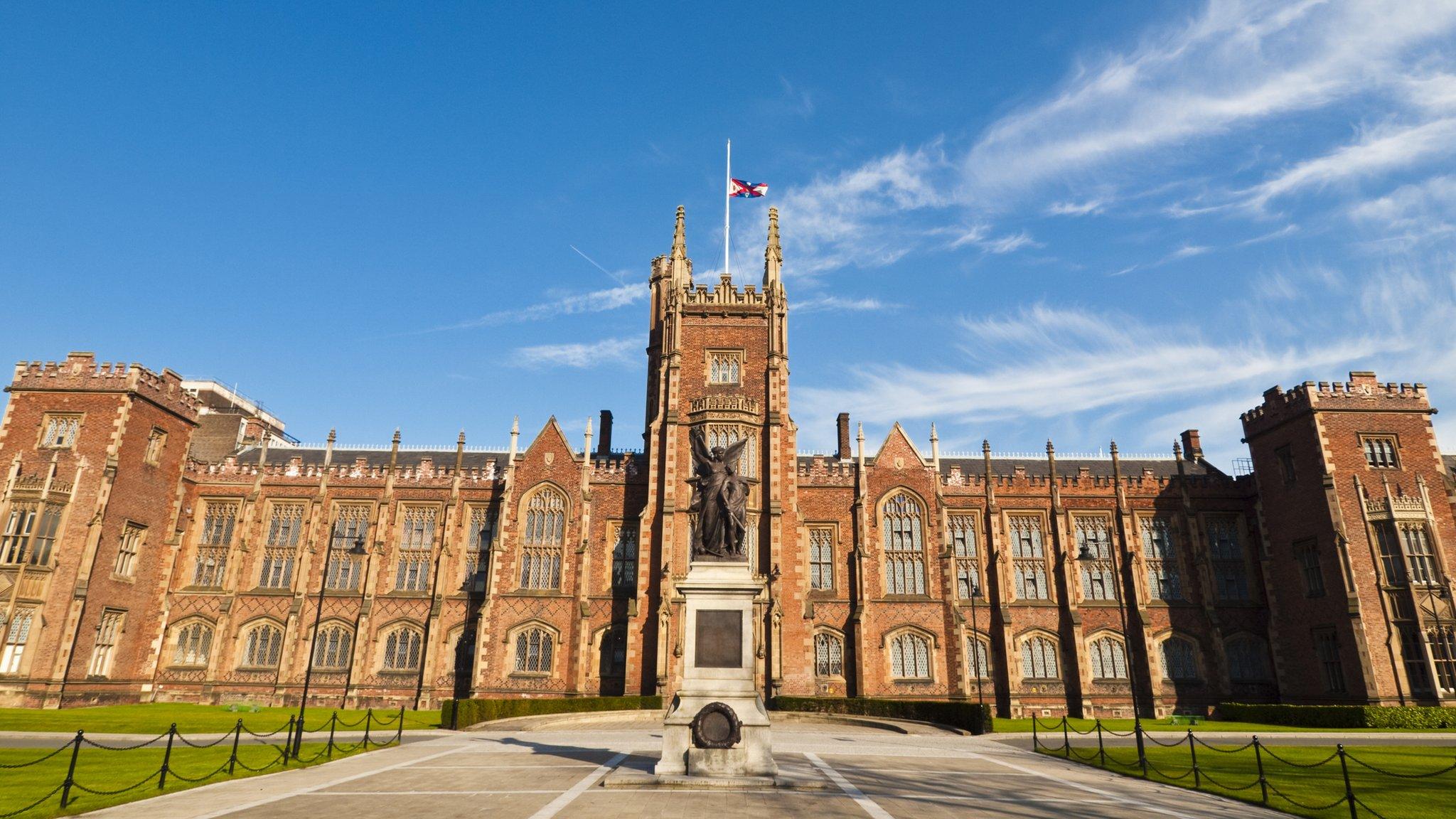Cost of living: Student support payment would cost up to £189m
- Published

The report was carried out by NUS-USI
Providing all students in Northern Ireland with a payment to help them with the rising cost of living would cost between £79m and £189m.
That is according to new analysis by the National Union of Students-Union of Students in Ireland (NUS-USI).
The NUS-USI said its figures were based on a one-off payment of either £650, £900 or £1,550.
The union has also called for a rent freeze on student accommodation and free public transport for students.
Scotland has recently introduced free public transport for everyone under 22.
In Northern Ireland, bus and train fares are rising by 7% from Monday.
More widely, inflation in the UK has been running at more than 10% since the start of the new university term in September 2022.
In October,Queen's University Belfast (QUB) declared a "critical incident" over the rising cost of living for staff and students.
It subsequently provided one-off payments of £400 to students from low-income backgrounds and £150 to other students.
'What is the point?'
The NUS-USI has published new analysis of how a cost-of-living payment, rent-freeze and free public transport would benefit students and how much it would cost.
The Cost of Survival report also includes some experiences of students about how increased costs have affected them.
"I am a full-time access student entering university for my first undergrad degree and I'm starting to think what is the point of attending university in the first place?" one told the report's authors.
"Since my dad is disabled and not able to work we live off benefits and with the price of everything going up we often have to choose between heating and food," another said.
The NUS-USI said all students in higher and further education in Northern Ireland should get a one-off cost of living payment from Stormont.
It said maintenance grants and loans available in Northern Ireland to help students had not increased along with inflation for a number of years.
"While one-off payments do not solve the wider systemic problems students are facing, it does help them to cover their bills this semester and take pressure off low and middle-income families that may be supporting them," the report said.
"Issuing a one-off cost-of-living payment should be viewed as an investment in the education and wellbeing of future generations."
"The cost of not acting to keep people in education could be much greater."
Previous data released by the Student Loans Company showed a rise in the number of Northern Irish students dropping out of university after the Covid pandemic.
According to NUS-USI's analysis, a payment of £650 to all students would cost £79m, a payment of £900 would cost £110m and a payment of £1,550 would cost £189m.

Students are also being affected by increased rent
The union also said many students were being hit by rising rent and transport costs.
In November 2022, the Office of National Statistics said that the annual growth rate of 9.5% in private rental prices in Northern Ireland was the highest in the UK.
Previous research by NUS-USI said some students were left with only £29 a week to live on after paying rent.
The NUS-USI report also said that introducing free public transport for students in Northern Ireland would ease a significant financial burden.
They have also called for increased mileage rates for nursing students.
Nursing students on placement are paid 25p a mile to travel to their place of work, but the civil service mileage rate in Northern Ireland is 45p for the first 10,000 miles.
'Horrific cuts'
"It is understandable that those in a position of power will ask what the cost of implementing these measures will be," the NUS-USI report concluded.
"We encourage those people to consider: what is the cost of not implementing them?"
"We have set out a clear case for bespoke support for students in Northern Ireland who are struggling to meet the demands of the cost of living crisis."
However, BBC News NI recently revealed that the Department for the Economy, which funds students and further and higher education, could be facing "horrific" cuts to its 2023/24 budget.
Related topics
- Published8 February 2023

- Published3 March 2023

- Published30 September 2022

- Published7 October 2022
